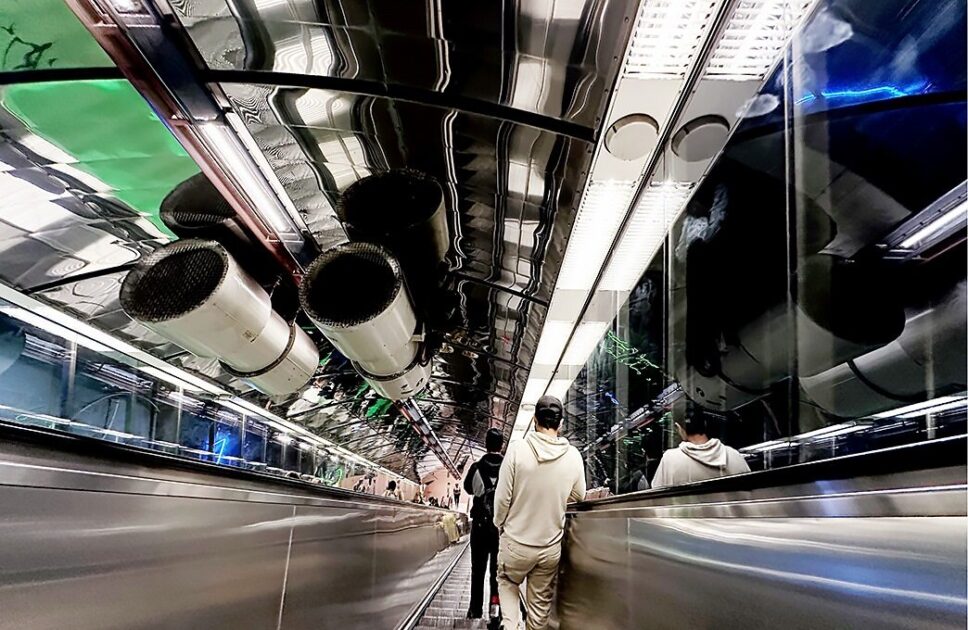Outlook for exports has darkened: the number of new orders and tender requests has fallen sharply in the technology industry

Demand has weakened notably in the technology industry. The outlook for next year is worrying, as the number of new orders and tender requests has fallen sharply in recent months. However, the number of personnel remained high in spite of the marked downswing in the economy.
The 2024 outlook for Finland’s largest export companies has darkened. Technology Industries of Finland’s latest order book and personnel survey indicates that turnover has continued to decline and there has been a sharp fall in the number of new orders and tender requests.
“The current situation heralds significant challenges for our member companies during the winter and early spring. Fortunately, companies still have strong order books that will support production for the time being. However, unless demand starts showing some signs of recovery, the situation for export companies may deteriorate considerably next year,” says Petteri Rautaporras, Director and Chief Economist at Technology Industries of Finland.
The monetary value of new orders received by technology industry companies in the July−September period was 24 per cent lower than in the previous quarter and 30 per cent lower year-on-year. New orders declined considerably in all of the technology industry’s main sectors. The value of new orders had already fallen at the beginning of the year, and has been decreasing steadily since then. At the end of September, the total value of order books was four per cent lower than at the end of June and 13 per cent lower than in September 2022.
In mechanical engineering, which is the largest technology industry sector, the value of new orders in the July–September period ended up being a staggering 39 per cent less than in preceding quarter. Year-on-year, the value of new orders decreased by 40 per cent.
This low order intake also heralds a contraction in order books during the winter, which will be reflected in a continuous decline in production over the winter months. Unless demand picks up during early 2024,there will also be a clear rise in unemployment.
The tender request balance figure for the entire technology industry fell to -31. The data collected during October clearly indicates that there has been a marked decline in demand in the market during the third quarter. Such a strong fall in demand will most likely have an unfavourable impact on order intake in the fourth quarter.
“There’s been a significant fall in demand in the market since the summer. At least for the moment, the worsening situation seems to be part of the normal economic cycle, so we shouldn’t be declaring an economic crisis or serious recession just yet. However, the extremely poor order intake during the third quarter can at the very least be seen as a warning that something more serious may lie ahead,” says Rautaporras.
Differences between companies have grown again, as is typical during shifts in the economic cycle. Some companies are already in serious difficulties, while others are still doing well. Rautaporras says that the economy is still well-placed to begin growing again once inflation subsides and interest rates stabilise and eventually start to fall.
“However, the global economy is still subject to a long list of risks that will have major impacts if realised. The coming winter will show which direction the Finnish economy is heading in over the near term.”
Economic Fluctuations Will Not Change the Need for Talent and RDI
The number of personnel employed by technology industry companies remained unchanged from the end of June, totalling 335,000 at the end of September.
According to Technology Industries of Finland’s personnel survey, approximately 9,500 employees were affected by lay-off procedures at the end of September compared to 6,000 at the end of July. Although there was a notable increase in the number of people laid off, the figures are still quite low in view of the circumstances.
A total of 8,700 recruitments were made in the July–September period, which is good under the circumstances. Although some companies have already started reducing their workforce, demand for labour remains high at others.
“It’s vital to understand that normal economic fluctuations and change negotiations will not alter Finland’s long-term need for talent. Export industry personnel are retiring at a rapid rate and an insufficient number of new technology experts are graduating. The current government’s competence and immigration policies alone have had a major impact on Finland’s future prospects,” says CEO Jaakko Hirvola.
New expertise is needed in areas such as research, development and innovation (RDI) related to clean energy and the green transition. Finland’s proposed investments in the green transition have risen to more than EUR 200 billion.
“In spite of the weaker economic outlook, companies will continue to make long-term investments in ambitious, sustainable export products – for which there is a good market. Good RDI decisions have been made in the Government Programme. Yet in order to reap the benefits, two-thirds of the additional funding must be channelled into genuine competitive tenders for companies. This will enable us to find new solutions for curbing climate change and promoting the wellbeing of our citizens and the overall security of our society,” says Hirvola.
Further information:

